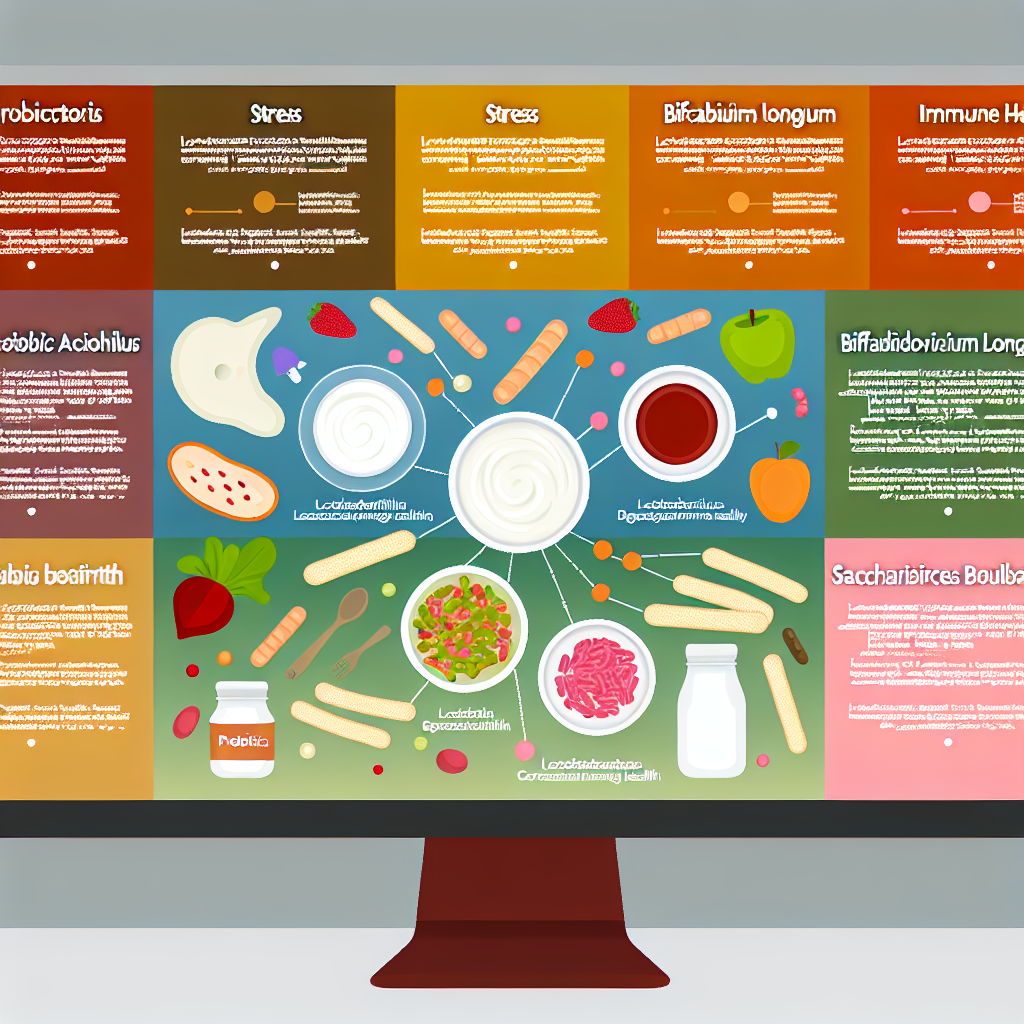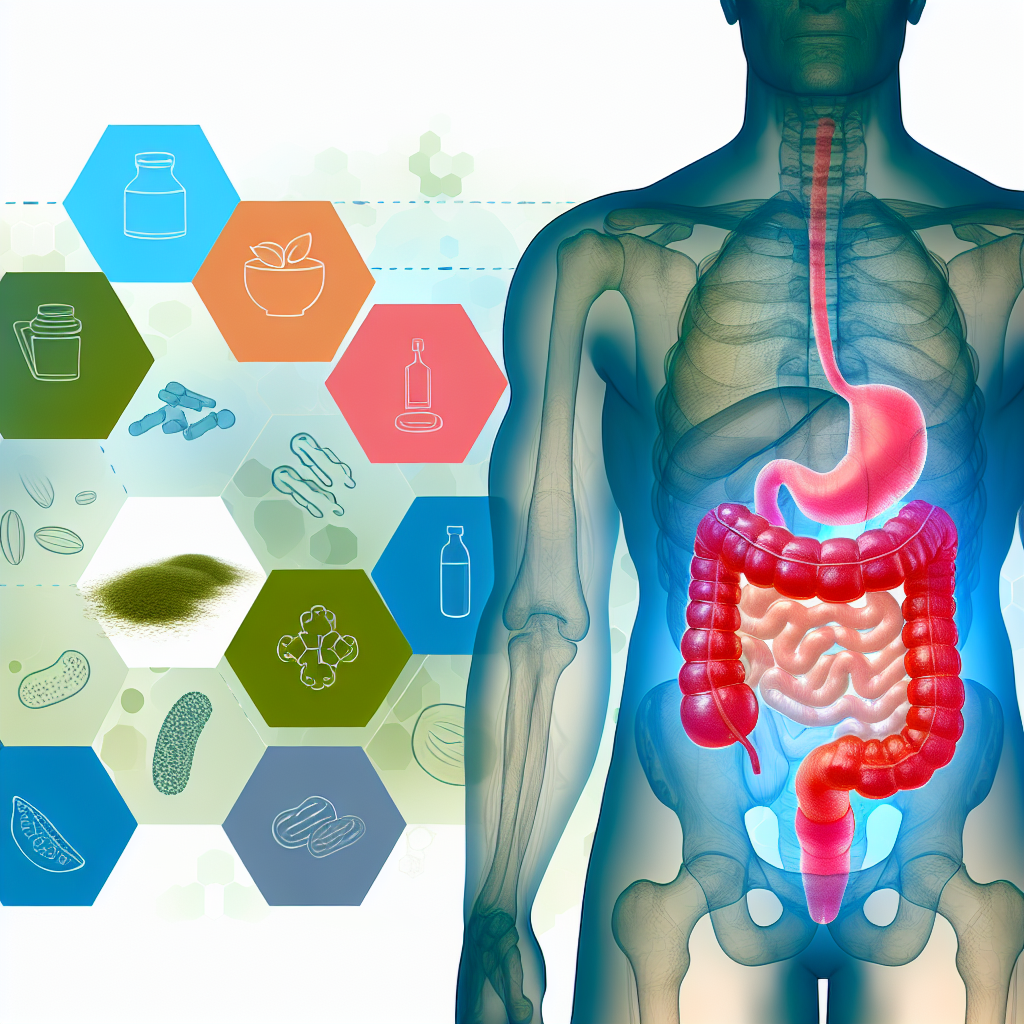Best Probiotic Strains for Specific Conditions
Introduction
Probiotics have gained attention in recent years as an essential part of maintaining digestive health. These beneficial bacteria help support gut flora, boost immunity, and contribute to overall well-being. However, not all probiotics are the same. Different strains offer unique benefits, targeting specific gastrointestinal conditions and other health concerns. Understanding which probiotic strains to take for particular conditions can lead to more effective treatments and better gut health outcomes.
The human gut is home to trillions of microorganisms, collectively forming what is known as the gut microbiome. A balanced microbiome plays a crucial role in digestion, nutrient absorption, and immune function. However, factors such as poor diet, stress, antibiotic use, and infections can disrupt the microbiome, leading to issues like irritable bowel syndrome (IBS), inflammatory bowel disease (IBD), constipation, and diarrhea. By supplementing with targeted probiotic strains, individuals can help restore the balance of gut bacteria and address specific digestive concerns.
Recent scientific studies have demonstrated that different probiotic strains exert distinctive effects on the gut. While some strains improve digestion and reduce bloating, others support immune defense against harmful pathogens. Additionally, certain probiotics have been found to help with mood regulation, showing the strong connection between gut health and mental well-being. Understanding these differences is key to choosing the best probiotics for individual health needs.
This article will explore the best probiotic strains for specific conditions such as IBS, diarrhea, constipation, and leaky gut syndrome. We will also discuss scientific research supporting their effectiveness, helping readers make informed decisions when selecting probiotic supplements. Whether you are suffering from chronic digestive issues or simply looking to maintain a healthier gut, incorporating the right probiotic strains into your diet can make a significant difference in your overall health.
Best Probiotic Strains for Specific Conditions
Top Probiotic Strains for Irritable Bowel Syndrome (IBS)
One of the most common digestive disorders, IBS, is characterized by symptoms such as bloating, abdominal pain, and alternating episodes of diarrhea or constipation. Specific probiotic strains that have been found beneficial for IBS include:
– Bifidobacterium infantis – Research has shown this strain is effective in reducing bloating, pain, and irregular bowel movements in IBS patients.
– Lactobacillus plantarum – Helps reduce inflammation and supports better digestion.
– Saccharomyces boulardii – A probiotic yeast that enhances gut barrier function and modulates immunity in IBS sufferers.
Powerful Probiotics for Diarrhea and Antibiotic-Associated Diarrhea
Diarrhea, whether caused by infections, traveling, or antibiotics, can be alleviated with specific probiotics such as:
– Lactobacillus rhamnosus GG – Extensively studied for preventing and treating diarrhea, particularly in children and travelers.
– Saccharomyces boulardii – Highly effective in preventing antibiotic-associated diarrhea by restoring healthy gut flora.
– Bifidobacterium bifidum – Supports gut integrity and decreases the severity of diarrhea-related symptoms.
Best Probiotic Strains to Combat Constipation
For individuals suffering from slow bowel movements and discomfort, probiotic strains that promote regular bowel habits include:
– Bifidobacterium lactis – Known to improve stool frequency and consistency.
– Lactobacillus casei – Helps regulate bowel movements and supports gut motility.
– Lactobacillus reuteri – Effective in reducing constipation, especially in children and elderly individuals.
Essential Probiotics for Healing Leaky Gut Syndrome
Leaky gut, or intestinal permeability, occurs when the gut lining becomes damaged, allowing toxins and undigested food particles to enter the bloodstream. Probiotics that help restore gut barrier function include:
– Lactobacillus rhamnosus GG – Strengthens gut lining integrity and supports immune function.
– Bifidobacterium breve – Helps reduce inflammation associated with intestinal permeability.
– Bacillus coagulans – Promotes a healthy gut environment and aids in mucosal healing.
Effective Probiotics for Inflammatory Bowel Disease (IBD)
IBD includes conditions like Crohn’s disease and ulcerative colitis, both of which can benefit from probiotic therapy:
– VSL#3 (a multi-strain probiotic mixture) – Shown in clinical trials to help maintain remission in ulcerative colitis.
– Escherichia coli Nissle 1917 – Supports the healing of gut tissue and reduces inflammation.
– Lactobacillus casei – Helps modulate the immune system and mitigate inflammation in IBD.
Scientific Studies Supporting Probiotic Efficacy
Several clinical studies confirm the effectiveness of probiotics in treating gastrointestinal conditions. For example, a study published in The American Journal of Gastroenterology demonstrated that Lactobacillus plantarum significantly alleviated abdominal pain and bloating in IBS patients (Riezzo et al., 2019). Another study in Gastroenterology & Hepatology found that Saccharomyces boulardii was instrumental in preventing antibiotic-associated diarrhea (McFarland, 2010).
For constipation relief, research published in The British Journal of Nutrition found Bifidobacterium lactis to improve stool frequency in adults with chronic constipation (Eskesen et al., 2015). Meanwhile, studies in Gut Microbes highlighted the role of Lactobacillus rhamnosus GG in strengthening gut barrier function, making it crucial for treating leaky gut syndrome (Segers & Lebeer, 2014).
Additionally, a clinical trial in Clinical Gastroenterology and Hepatology found VSL#3 to be highly effective in maintaining remission in ulcerative colitis patients, confirming that multi-strain probiotics offer significant benefits for those with IBD (Tursi et al., 2019).
By analyzing these studies, it is evident that specific probiotic strains play a critical role in alleviating digestive disorders and supporting overall gut health.
Conclusion: Selecting the Right Probiotic for Your Health
Understanding the right probiotic strain for specific gastrointestinal conditions is key to achieving optimal gut health. While probiotics can provide multiple health benefits, selecting the appropriate strain based on individual needs ensures the best results. Scientific research supports the effectiveness of various strains in managing IBS, diarrhea, constipation, leaky gut syndrome, and inflammatory bowel disease.
For individuals seeking natural remedies for gut issues, targeted probiotic supplementation offers a safe and effective solution. As ongoing research continues to uncover the potential of probiotics in treating various health conditions, incorporating them into a daily wellness routine can provide long-term digestive benefits. Consulting with a healthcare professional before starting probiotic supplements is always advisable to ensure they align with one’s personal health needs.
100 Word Summary:
Probiotics offer unique benefits for specific digestive conditions. Understanding the right probiotic strains for issues like IBS, diarrhea, constipation, leaky gut, and inflammatory bowel disease is key to effective treatment. Scientific studies support the efficacy of strains like Bifidobacterium, Lactobacillus, and Saccharomyces in alleviating symptoms and restoring gut health. Incorporating targeted probiotic supplementation can provide long-term benefits, but consulting a healthcare professional is recommended to ensure the right strains are selected for individual needs. Maintaining a balanced gut microbiome through probiotics is crucial for overall digestive and immune health.

Dominic E. is a passionate filmmaker navigating the exciting intersection of art and science. By day, he delves into the complexities of the human body as a full-time medical writer, meticulously translating intricate medical concepts into accessible and engaging narratives. By night, he explores the boundless realm of cinematic storytelling, crafting narratives that evoke emotion and challenge perspectives.
Film Student and Full-time Medical Writer for ContentVendor.com




